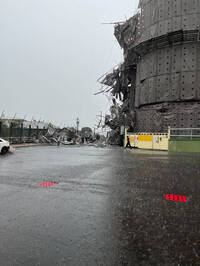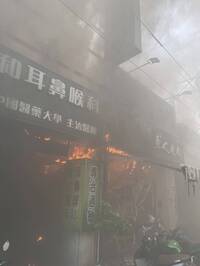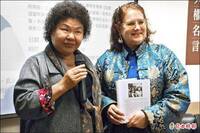《TAIPEI TIMES 焦點》 Taiwan and Japan should cooperate on food labels: Ma
OBJECTIONS: Japan has protested against new regulations, saying they should be scrapped and that it would appeal to the WTO if they are not
/ Staff writer, with CNA
President Ma Ying-jeou (馬英九) yesterday proposed that authorities in Taiwan and Japan work together to trace the origin of false labels found on some food items imported from Japan as a way to resolve a dispute over Taiwan’s decision to tighten controls on Japanese food products.
Ma said that the measures imposed by Taiwan are not intended to impose trade barriers or damage relations between the two nations.
“These are short-term measures. We hope the related agencies in Japan will cooperate with us fully,” Ma said in response to a question at an informal gathering with the media.
The measures could be lifted as soon as the problem of false labeling is resolved, he said.
On Friday, the Food and Drug Administration (FDA) implemented tighter controls on Japanese food imports, requiring documents that show not only the country of origin, but also the specific place within the country where the product originated.
The new regulations were imposed after it was found in March that products from five restricted areas in Japan had made their way into Taiwan using false labels.
Taiwan implemented a ban on food imports from the Japanese prefectures of Fukushima, Ibaraki, Tochigi, Gunma and Chiba following the Fukushima Dai-ichi nuclear power plant disaster in March 2011 after Japan was struck by an earthquake and tsunami.
Ma said Taiwan had planned to lift the ban on imports from Ibaraki, Tochigi, Gunma and Chiba before the false labeling was discovered.
Taiwan now requires that place-of-origin documents be issued by the Japanese government or an organization authorized or recognized by the Japanese government.
Also under the new regulations, imports of tea, baby food and aquaculture products from some areas of Japan, including Tokyo and Shizuoka Prefecture, must be accompanied by a certificate showing that they tested free of radioactive contamination.
The tests must be carried out by the Japanese government or internationally certified organizations, according to the FDA rules.
Japan has protested strongly against the regulations and threatened to take its complaint to the WTO if Taiwan does not withdraw the new rules.
Ma said the issue was legal, rather than scientific, in response to Japan’s calls for Taiwan to ease or scrap its rules based on a scientific perspective.
Taiwanese consumers enjoy Japanese foodstuffs very much, Ma said.
“There is no reason for Taiwan to deliberately make things difficult for [Japan],” he said.
Once the investigation into false and misleading food labeling is completed, local consumers’ confidence in Japanese food can be restored, Ma said.(Additional reporting by Reuters and Shih Hsiu-chuan)
新聞來源:TAIPEI TIMES




















